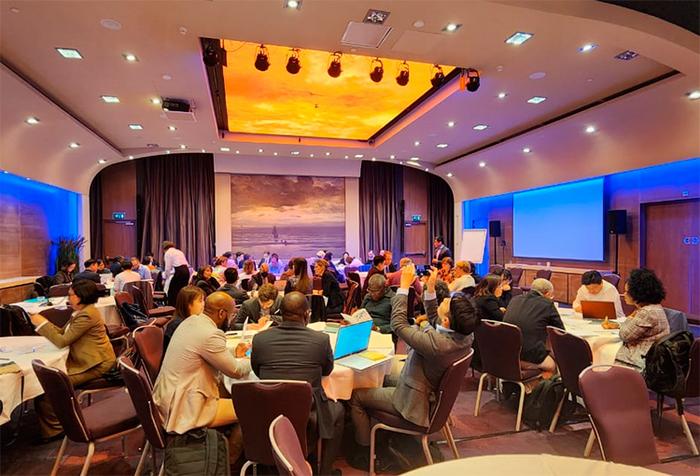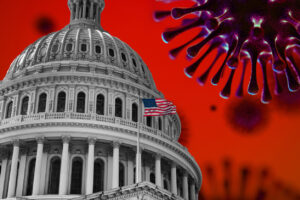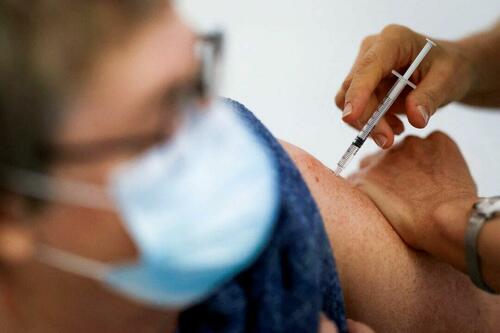Factors such as technological advancement, globalization and demographic changes are transforming the world we live in, making it more turbulent, polarized and unpredictable. This tension manifests itself through climate change, heightened migration crises, ethnic conflicts, socioeconomic inequality and authoritarianism, as well as a growing lack of trust in institutions. To address these and other global challenges, scientists around the world must cross borders and work collaboratively.
The reflection was made by Andreas Göthenberg, Executive Director of the Swedish Foundation for International Cooperation in Research and Higher Education (Stint), at the opening of the event “Research integrity and security: Exploring funding agency roles in supporting responsible internationalization and reciprocity.” The meeting is part of the program of the Annual Meeting of the Global Research Council (GRC), which in 2023 is being held in The Hague, in the Netherlands (read more at: https://agencia.fapesp.br/41475/).
“We have to work together if we want to achieve the Sustainable Development Goals [SDGs]. But a complex world requires responsible internationalization,” Göthenberg stressed in his introductory speech.
The debate held this Monday (May 29) was moderated by Tommy Shih, professor of business administration at Lund University (Sweden). He told FAPESP Agency that he was recruited as a senior consultant by Stint in 2018 to promote international collaboration – a mission that, in his assessment, has become more challenging every year.
“We started talking to different funding agencies about this topic and I think many agree that [internationalization] is something that’s getting more complicated. If we compare it to five years ago, today it’s much worse, unfortunately. We have to worry not only about what we’re used to as scientists – like getting resources and being excellent – but also about other factors, like the pressure we receive from politicians. That’s where this notion of responsibility in research came from, which is linked to issues such as integrity and ethics,” Shih explained.
In 2020, after a series of initial discussions with other funding agencies, Stint released a document with guidelines for a reflection on international academic collaboration.
“We sought to raise awareness of the fact that we need to consider the global scientific effort in a broader sense than the traditional one, including concerns about political and security issues among countries. Right after we launched this document, COVID-19 came and the discussions stopped for almost two years. We resumed in 2022, when we started working in partnership with the NSF [National Science Foundation, United States] and JST [Japan Science and Technology Agency], two funding agencies that are right in the middle of the tensions between the world superpowers. It’s a complex world, but we won’t achieve anything if we remain afraid. We have to engage, but in a responsible way,” Shih said.
The role of funding agencies
Monday’s debate follows on from discussions at a workshop held in October 2022 in Japan. One of the conclusions was that in this complex and changing world, funding agencies have a crucial role to play in promoting training and helping to develop a culture of research security, said the mathematician Mike Steele, program officer at the NSF’s Division of Research on Learning.
“Why is it important that we have this discussion? Because we want the researchers we fund who are involved in these collaborations to have these discussions,” Steele told FAPESP Agency. “We’re trying to establish some core values for funding international collaborations, including transparency, reciprocity, and openness [open science]. And looking for ways to avoid conflicts of interest and other types of influence that can undermine public confidence in science.”
“I’d like to emphasize the issue of reciprocity, which is what we’re discussing in this session,” added Kendra Sharp, head of NSF’s Office of International Science and Engineering.
As she explained, a reciprocal collaboration involves multiple aspects, including equal access to research data, a clear understanding of intellectual property and publishing standards, as well as access to mobility for students, researchers, and professors. “Reciprocity doesn’t necessarily require an equivalent financial investment, but the realization that everyone involved benefits from the collaboration.”
And this is the key point of the discussion, in Shih’s evaluation. According to him, one of the main obstacles to the advancement of internationalization is the feeling that the relationship between the partners is not reciprocal. And this type of discussion facilitates the understanding of what each side gains from the collaboration.
“Scientists often don’t perceive national borders and tend to think that their projects create value for them as well as for humanity as a whole. But the logic of politics is different: if taxpayers are funding research, they should get something in return. We have to better communicate what we’re getting in return and how this creates value for the economy and increases a country’s innovation capacity. This will make the process easier and give funding agencies more room to maneuver,” he said.
Other speakers at the event were Nicole Arbour, executive director of the Belmont Forum; Stefan Törnqvist, head of the Secretariat for International Coordination of the Swedish Research Council; Osamu Kobayashi, director of the JST’s Department of International Affairs; and Anak Khantachawana, professor at King Mongkut’s University of Technology Thonburi (Thailand).
The Annual Meeting of the GRC – an entity that brings together more than 60 research funding agencies from all continents – continues until June 2 in The Hague. The organizers of the 2023 edition are the Netherlands Organization for Scientific Research (NWO) and FAPESP.










































